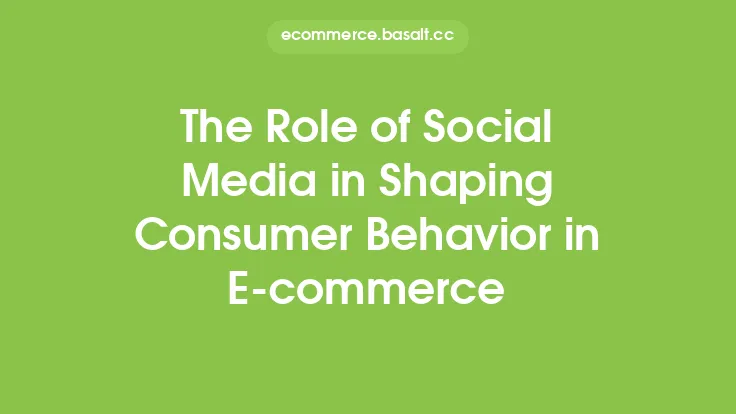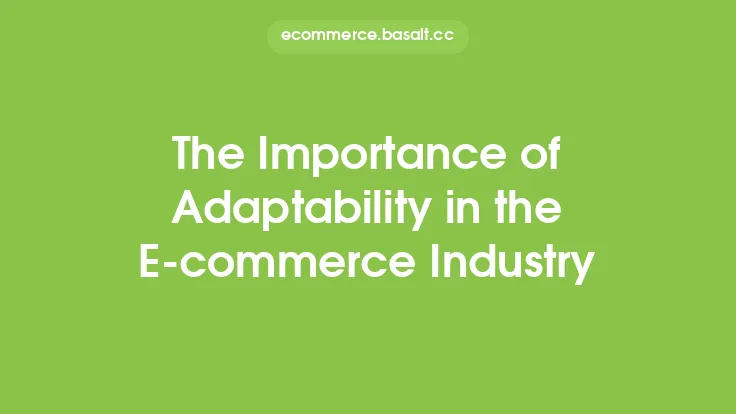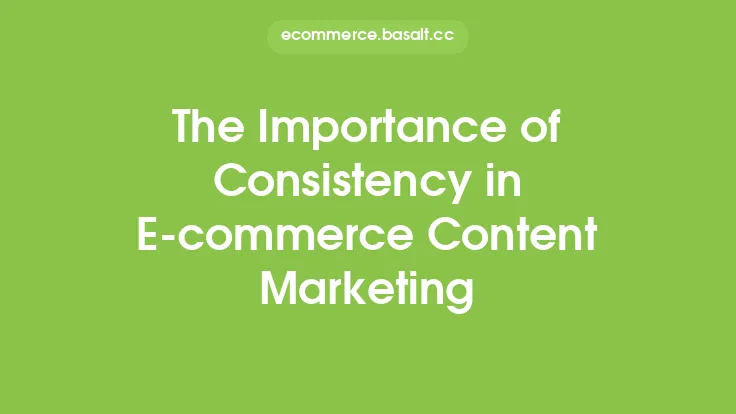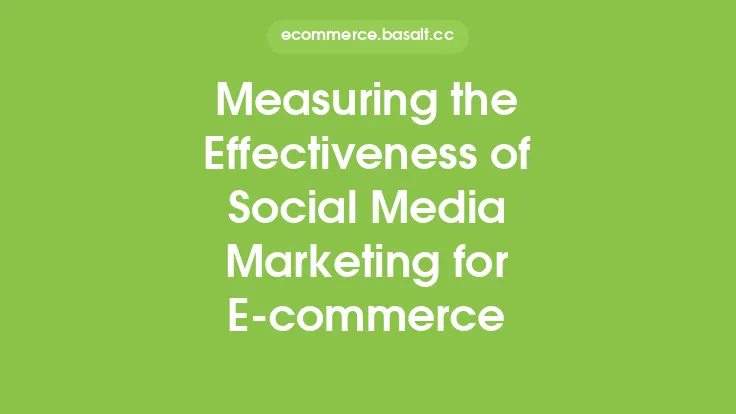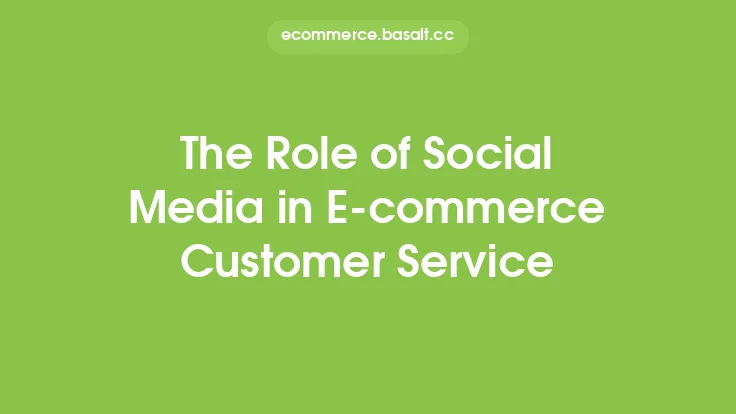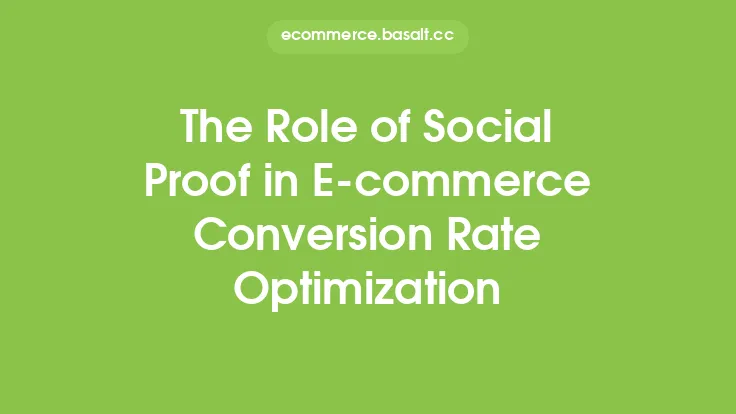In today's digital age, social media has become an integral part of e-commerce marketing. It's no longer just a platform for connecting with friends and family, but a powerful tool for businesses to reach their target audience, build brand awareness, and drive sales. Social media engagement, in particular, plays a crucial role in e-commerce, as it allows businesses to interact with their customers, build trust, and create a loyal community. In this article, we'll explore the importance of social media engagement in e-commerce and why it's essential for businesses to prioritize it.
What is Social Media Engagement?
Social media engagement refers to the interactions between a business and its audience on social media platforms. This can include likes, comments, shares, and messages, as well as other forms of engagement such as polls, quizzes, and contests. Social media engagement is a two-way conversation, where businesses listen to their customers' feedback, respond to their queries, and provide them with valuable content that resonates with their interests. By engaging with their audience, businesses can build a strong online presence, increase brand awareness, and drive website traffic and sales.
Benefits of Social Media Engagement in E-commerce
There are numerous benefits of social media engagement in e-commerce, including:
- Increased brand awareness: Social media engagement helps businesses to increase their online visibility, reach a wider audience, and build a strong brand identity.
- Improved customer service: Social media engagement allows businesses to respond to customer queries, resolve issues, and provide support in real-time, which can lead to increased customer satisfaction and loyalty.
- Enhanced customer experience: Social media engagement helps businesses to understand their customers' needs, preferences, and behaviors, which can inform product development, marketing strategies, and customer service.
- Increased website traffic and sales: Social media engagement can drive website traffic and sales by promoting products, offering exclusive discounts, and encouraging customers to make a purchase.
- Competitive advantage: Businesses that prioritize social media engagement can gain a competitive advantage over their rivals, as it demonstrates their commitment to customer satisfaction and online presence.
How to Measure Social Media Engagement
Measuring social media engagement is crucial to understanding its effectiveness and identifying areas for improvement. Some common metrics used to measure social media engagement include:
- Engagement rate: The percentage of followers who engage with a business's content, such as likes, comments, and shares.
- Reach: The number of people who view a business's content, including paid and organic reach.
- Impressions: The number of times a business's content is displayed, including paid and organic impressions.
- Click-through rate (CTR): The percentage of people who click on a business's content, such as links to their website or online store.
- Conversion rate: The percentage of people who complete a desired action, such as making a purchase or filling out a form.
Strategies for Improving Social Media Engagement
There are several strategies that businesses can use to improve social media engagement, including:
- Creating high-quality, engaging content that resonates with their target audience.
- Using social media advertising to increase reach and engagement.
- Responding to customer queries and comments in a timely and personalized manner.
- Hosting social media contests, giveaways, and other interactive events.
- Collaborating with influencers and other businesses to expand their reach and engagement.
- Analyzing their social media metrics to identify areas for improvement and optimize their strategy.
Best Practices for Social Media Engagement
To get the most out of social media engagement, businesses should follow best practices such as:
- Being authentic and transparent in their online interactions.
- Responding to customer feedback and complaints in a professional and courteous manner.
- Using social media to provide value to their customers, such as exclusive offers, tips, and advice.
- Being consistent in their branding and messaging across all social media platforms.
- Monitoring their social media metrics and adjusting their strategy accordingly.
- Being patient and persistent, as social media engagement is a long-term strategy that requires ongoing effort and commitment.
Common Mistakes to Avoid
There are several common mistakes that businesses make when it comes to social media engagement, including:
- Ignoring customer feedback and complaints.
- Posting low-quality or irrelevant content.
- Overposting or spamming their audience.
- Not responding to comments and messages in a timely manner.
- Not analyzing their social media metrics to identify areas for improvement.
- Not being authentic or transparent in their online interactions.
By avoiding these mistakes and following best practices, businesses can create a strong social media engagement strategy that drives website traffic, sales, and customer loyalty.
Conclusion
Social media engagement is a critical component of e-commerce marketing, as it allows businesses to interact with their customers, build trust, and create a loyal community. By understanding the benefits of social media engagement, measuring its effectiveness, and using strategies to improve it, businesses can drive website traffic, sales, and customer loyalty. Remember to follow best practices, avoid common mistakes, and be patient and persistent, as social media engagement is a long-term strategy that requires ongoing effort and commitment. With the right approach, social media engagement can become a powerful tool for businesses to achieve their e-commerce goals and succeed in today's digital age.
